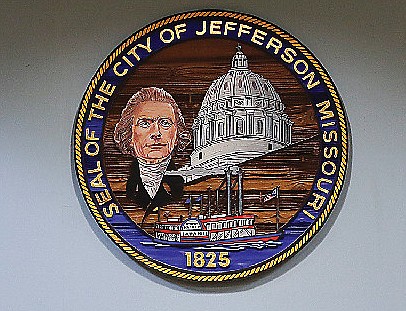Jefferson City expects more than $18 million in federal funding over the next five years, but staff said they need help handling it.
Between the 2019 tornado and COVID-19, as well as applying for more grants, the city is receiving more federal funding than in the past, and Rachel Senzee, neighborhood services supervisor, said she needs an additional staff member.
The Neighborhood Services Division includes three employees who apply for grants and help administer them within the city.
"I anecdotally tell people that we do everything in the neighborhood unless it requires an engineer and then we have to walk over to public works to get their assistance," she said. "We implement neighborhood plans. We do everything from trash recycling to historic preservation. We also manage the Community Development Block Grant. We also provide incentives for economic development within the city that will benefit neighborhoods."
Most of the additional money expected will be subgranted through the city to different organizations and individuals. Those applications take manpower to process and oversee. They'll go toward a variety of needs including child care, housing, and restoration of historic properties and infrastructure, among other things.
The department typically deals with $300,000-$400,000 a year, Senzee said.
In 2020, the department handled $370,000. In 2021, that jumped to $3.8 million.
She said 2022 is shaping up to be around $10.2 million.
Most grants will last for two to five years, which means some of the 2021 money will roll over. With that rollover, Senzee said, 2022 will likely be closer to $13.8 million.
"That number is just going to keep rolling as we get into '23 and '24 and so on as more of these federal opportunities become available," she said. "We also still have to manage things we've already obligated ourselves for."
Senzee said she gets questions about what it will look like when the COVID-19-related funding stops.
"We're actually growing our division and being able to bring in more funds," she said.
Each grant the division applies for and receives, the city can keep a certain amount for administrative costs.
This is normally around 20 percent of the amount for the grant, but some are lower.
For instance, a $300,000 grant with 20 percent allowed for administrative costs means the city can keep up to $60,000 for running the program.
The city recently received $675,000 through the Paul Bruhn Historic Revitalization Grants Program, which will be subgranted to property owners for historic preservation projects in the downtown and Old Munichburg historic districts. Of that, 5 percent, or $33,750, can be used for administrative costs.
Senzee said she's asking for an additional neighborhood services specialist I, which makes around $53,500, or a specialist II that makes around $71,000 annually, including benefits.
"For that additional staff person, depending on how much they come in, if their family needs to be on their insurance with how the fringe works out, we're estimating between $50,000 and $70,000 a year," Senzee said. "Federal funds could cover that person for two and a half to three years."
For 2022, there's approximately $389,690 available through grant administration fees and the current staff accounts for $202,758, which leaves $186,932 available, according to her proposal.
With an additional person, Senzee said the department will "have more people that can interface with the public. We'll have more people that can manage these programs."
The request passed the Committee on Administration on Wednesday, but still needs to go through the City Council.

